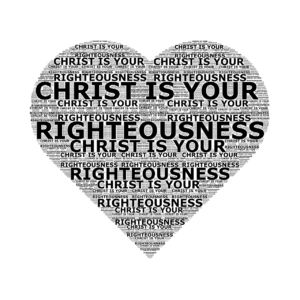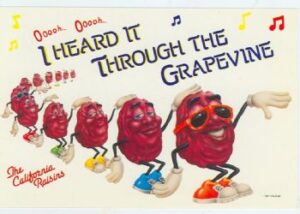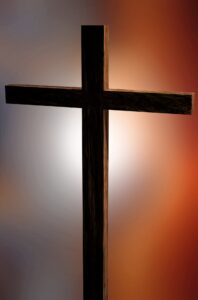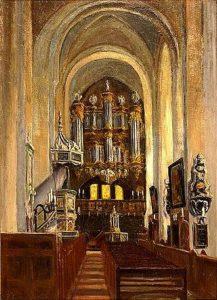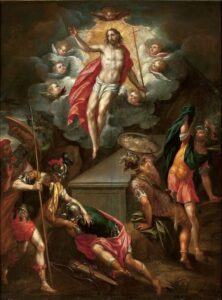
The Crucifixion of Jesus and His resurrection are at the core of the Christian faith. But is it just blind faith that binds us together or is there logical evidence supporting the resurrection of Christ? Scientific study is often summarized by two concepts, observations, and repeatability. Let us walk through God’s Shadows and see what evidence He has left for us to find.
Jesus’ Crucifixion Took Place in a Public Place
Jesus was crucified at Golgotha, which means “place of the skull,” because so many had died there. Executions were typically held outside city walls. Hundreds of people would attend and attest to His death as witnesses:
- Chief priests, scribes, and elders (Matthew 27:41)
- A Centurion and Roman soldiers (Matthew 27:54)
- Simon of Cyrene (Mark 15:21)
- Two criminals were crucified with Jesus (Luke 23:33)
- Crowds of bystanders (Matthew 27:37); Luke 23:48); John 19:20)
- Many women, including Mary Magdalene, Mary, the mother of James and Joseph and wife of Clopas, and Salome the mother of the sons of Zebedee (Matthew 27:56); Mark 15:40); John 19:26),
- Jesus’ mother (John 19:26)
- The “disciple Jesus loved” — probably John (John 19:26)
- Acquaintances of Jesus (Luke 23:49)
- Joseph of Arimathea (Matthew 27:57)
- Nicodemus (John 19:39)
Therefore, no one should have doubts about whether Jesus died or how He was put to death.
The Removal of Jesus’ Body
Witnesses reported the following:
“It was now about noon, and darkness came over the whole land until three in the afternoon, for the sun stopped shining. And the curtain of the temple was torn in two.” – (Luke 23:44-45)
“And at three in the afternoon Jesus cried out in a loud voice, “Eloi, Eloi, lema sabachthani?” (which means “My God, my God, why have you forsaken me?” – (Mark 15:34)
It was now late on a Friday, almost sundown, and the Sabbath was about to begin. Jesus was already dead, but the two robbers alongside him were still alive. According to the Law:
“If someone guilty of a capital offense is put to death and their body is exposed on a pole, you must not leave the body hanging on the pole overnight. Be sure to bury it that same day because anyone who is hung on a pole is under God’s curse. You must not desecrate the land the Lord your God is giving you as an inheritance.” – (Deuteronomy 21:22-23)
Friday afternoon was called “Preparation” because people would prepare meals and complete any other tasks that could not wait until after the Sabbath. At sunset, a double, or “great,” Sabbath would have begun (John 19:31). It was the first day of the seven-day Festival of Unleavened Bread, the first day of which was always a Sabbath. (Leviticus 23:5-6).
The Jewish leaders asked Pilate to hasten the death of Jesus and the two robbers alongside him by having their legs broken. That would make it impossible for them to use their legs to raise their bodies and continue breathing. The Roman soldiers came and broke the legs of the two robbers. However, Jesus appeared to be already dead, and they did not break his legs. This fulfills (Psalm 34:20): “he protects all his bones, not one of them will be broken.”
To remove any doubt that Jesus is dead, a Roman soldier jabbed a spear into His side, piercing a region of His heart. “…. bringing a sudden flow of blood and water.” – (John 19:34) This fulfills another scripture:
“And I will pour out on the house of David and the inhabitants of Jerusalem a spirit of grace and supplication. They will look on me, the one they have pierced, and they will mourn for him as one mourns for an only child and grieve bitterly for him as one grieves for a firstborn son.” – (Zechariah 12:10)
One of the Roman soldiers there, a Centurion, had witnessed other crucifixions before. In all probability, he was the ranking soldier in charge of the execution. Why was this one different for him? Jesus did not look like an ordinary criminal, never begging once for His life. Jesus spoke only words of love from the cross. And then there was the strange darkness covering the land. Whatever it was, something stirred in this professional soldier’s soul as he looked at Jesus’ lifeless body and said, “This man truly was the Son of God!” – (Mark 15:38)
The Burial of Jesus
“As evening approached, there came a rich man from Arimathea, named Joseph, who had himself become a disciple of Jesus.” – (Matthew 27:57) Joseph did not support the court’s judgment of Jesus. (Luke 23:50; Mark 15:43; John 19:38) Joseph asks Pilate for Jesus’ body. The army officer in charge confirms that Jesus is dead and Pilate grants Joseph’s request.
Joseph buys clean, fine linen and takes Jesus’ body down from the cross. He wraps Jesus in linen in preparation for burial. Nicodemus helps with the preparation (John 19:39). He brings about a hundred Roman pounds (72 pounds, or 33 kg) of a mixture of myrrh and aloes. Jesus’ body is wrapped in bandages containing these spices, according to the Jewish burial custom.
Joseph owns an unused tomb carved in a rock nearby, and Jesus’ body is laid in it. Then a large stone is rolled in front of the tomb. This is all quickly done before the Sabbath begins. Once they were certain everything was done correctly, Joseph “departed” (Matthew 27:60; Mark 15:46). Mary Magdalene and Mary the mother of James may have been helping with the preparation of Jesus’ body. “Then they went home and prepared spices and perfumes. But they rested on the Sabbath in obedience to the commandment.” This was to further treat Jesus’ body after the Sabbath.” (Luke 23:56)
The Insurance That No One Tampers with Jesus’ Body
The next day, the Sabbath, the chief priests and Pharisees go to Pilate and say:
“Sir,” they said, “we remember that while he was still alive that the deceiver said, ‘After three days I will rise again.’ So give the order for the tomb to be made secure until the third day. Otherwise, his disciples may come and steal the body and tell the people that he has been raised from the dead. This last deception will be worse than the first.” “Take a guard,” Pilate answered. “Go, make the tomb as secure as you know how.” – (Matthew 27:63-65).
When the chief priests and Pharisees asked for security, they used the Greek word “sphragidzo.” This word described a legal seal that was placed on documents, letters, possessions, or, in this case, a tomb. Its purpose was to authenticate that the sealed item had been thoroughly inspected before sealing and that all the contents were in order. If the seal remained unbroken, it guaranteed that the contents inside were safe and sound. In this case, the word sphragidzo is used to signify the sealing of the tomb.
Before sealing the tomb, the authorities were first required to inspect the inside of the tomb to see that the body of Jesus was in its place. After guaranteeing that the corpse was where it was supposed to be, they would roll the stone back in place and then sealed it with the official seal of the governor of Rome. Most probability, it was a string that was stretched across the stone at the entrance of the tomb, which was then sealed on both sides by Pilate’s legal authorities.
The Empty Tomb
Early Sunday morning, Mary Magdalene, Mary the mother of James, and other women brought spices to the tomb to treat Jesus’ body. “and they asked each other, “Who will roll the stone away from the entrance of the tomb?” – (Mark 16:3) Matthew in 28:2 records, “There was a violent earthquake, for an angel of the Lord came down from heaven and, going to the tomb, rolled back the stone and sat on it.” The women find Jesus’ burial cloths neatly folded inside, hardly the act of hurrying grave robbers. The angel(s) said Jesus had risen from the dead.
Jesus, the Resurrected Christ is Seen by Many
The first eyewitnesses are women, further proof that the Gospels are accurate historical records. Women were second-class citizens in Biblical times and their testimony was not even allowed in court. The Bible, however, says the risen Christ first appeared to Mary Magdalene and other holy women. Even the apostles did not believe Mary when she told them the tomb was empty. Jesus, who always had special respect for these women, honored them as the first eyewitnesses to His resurrection. The male Gospel writers had no choice but to report this embarrassing act of God’s favor because that was how it happened.
Here are the Bible’s Recorded Encounters with the Risen Christ:
- Mary Magdalene (Mark 16:9); John 20:1, 14–18
- Women returning from the tomb (Matthew 28:8–10)
- Peter (John 20:3–9; 1 Cor 15:5)
- Disciples on the road to Emmaus (Mark 16:12); Luke 24:13–31)
- Apostles, Thomas is absent (John 20:19–24; (Luke 24:36–43)
- Apostles, Thomas present (John 20:26–28)
- Seven by Sea of Galilee (John 21:1–14)
- 500 believers at one time (1 Cor 15:6)
- James (1 Cor 15:7)
- Eleven (Acts 1:3–4)
- Apostles at his ascension (Acts 1:9)
- Stephen (Acts 7:56)
- Paul (Acts 9:1-6)
- Paul in the temple (Acts 22:18–21)
- John on Patmos (Rev 1:9–20)
New-Found Courage In Jesus’ Disciples
After the crucifixion, Jesus’ apostles hid behind locked doors, terrified they would also be crucified. But something changed in them, transforming them from cowards to bold preachers. Humans rarely change that much without some major event that has of great influence on their beliefs. That influence was seeing their Master, bodily rise from the dead. Christ appeared to them in the locked room, on the shore of the Sea of Galilee, and Mount of Olives. An important but often overlooked fact was that when people saw the resurrected Christ, they were able to also see evidence of His death—the crucifixion most witnessed themselves. As with the story of the apostle Thomas (Doubting Thomas) in (John 20:26–29, the wounds on Jesus’ hands and His side were plain for all to see.
After seeing Jesus alive, Peter and the others left the locked room and preached about the risen Christ, unafraid of what would happen to them. They quit hiding because they knew the truth. They finally understood that Jesus is God incarnate, who saves people from sin.
Changing Lives Through the Gospel’s Story
Changed lives are yet another proof of the resurrection. James, the brother of Jesus, was openly skeptical that Jesus was the Messiah. Later, James became a courageous leader of the Jerusalem church, even being stoned to death for his faith. Why? The Bible says that the risen Christ appeared to him. What a shock to see your brother, alive again, after you knew He was dead. James and the apostles were effective missionaries because people could tell these men had touched and seen the risen Christ. With such zealous eyewitnesses, the early church exploded in growth, spreading west from Jerusalem to Rome and beyond. For 2,000 years, encounters with the resurrected Jesus have changed lives. It still goes on today.
A large crowd of more than 500 eyewitnesses saw the risen Jesus Christ all at the same time. The Apostle Paul records this event in 1 Corinthians 15:6. He states that most of these men and women were still alive when he wrote this letter, about 55 A.D. Today, most would say it would be impossible for a large crowd of people to have had the same hallucination at once. Smaller groups also saw the risen Christ, such as the apostles, and Cleopas and his companion. They all saw the same thing, and in the case of the apostles, they touched Jesus and watched him eat food.
The Conversion of the Apostle Paul
The conversion of Paul records the most drastically changed life in the Bible. As Saul of Tarsus, he was an aggressive persecutor of the early Christian church. After the risen Christ appeared to Paul on the Damascus Road, Paul became Christianity’s most determined missionary. He endured five floggings, three beatings, three shipwrecks, a stoning, poverty, and years of ridicule.
(2 Corinthians 6:3-10) – We put no stumbling block in anyone’s path, so that our ministry will not be discredited. Rather, as servants of God we commend ourselves in every way: in great endurance; in troubles, hardships and distresses; in beatings, imprisonments and riots; in hard work, sleepless nights and hunger; in purity, understanding, patience and kindness; in the Holy Spirit and in sincere love; in truthful speech and in the power of God; with weapons of righteousness in the right hand and in the left; through glory and dishonor, bad report and good report; genuine, yet regarded as impostors; known, yet regarded as unknown; dying, and yet we live on; beaten, and yet not killed; sorrowful, yet always rejoicing; poor, yet making many rich; having nothing, and yet possessing everything.
Finally, the Roman emperor Nero had Paul beheaded because Paul refused to deny his faith in Jesus. What could make a person willingly accept, even welcome, such hardships? Only knowing for sure that the resurrected Christ is real!
People are willing to Die for Jesus
Countless people have died for their faith in Jesus, all certain that the resurrection of Christ is a historical fact. Tradition says ten of the original apostles died as martyrs for Christ, as did the Apostle Paul. Hundreds, perhaps thousands, of early Christians, died in the Roman arena and were imprisoned for their faith. Through the centuries, thousands more have died for Jesus because they believed the resurrection was true. Even today, people suffer persecution because they have faith that Christ rose from the dead. An isolated group may give up their lives for a cult leader, but Christian martyrs have died in many lands, for nearly 2,000 years, believing Jesus conquered death to give them eternal life.
What is Your Faith Based On?
We all fall short of both humanity’s and God’s laws and deserve judgment. God, the Father, became incarnate and sent His only Son to satisfy that judgment for those who believe in Him. Jesus, both the creator and the eternal Son of God, lived a sinless life here on earth. But it would be His love for us that would cause Him to die a violent death, a crucifixion, for our sins. Jesus took the punishment that we deserve, was buried, and rose from the dead. We now have a choice to believe and trust in this story. Through that faith in Jesus, we can receive Him as our Savior and be saved from judgment, spending eternity with God in His Kingdom.
Contemplations
- The human being is the only form of life that will give its life up for a cause. The rest of creation functions off of instincts. What causes might be so impactful that you would surrender your life?
- Ideas to Explore: What makes a cause worth dying for? How strong does a person’s belief in a cause have to be to die for it?
- There are a few decisions that every Christian needs to make to be secure in their faith. Where do you stand on the following list?
- Ideas to Explore: Is there a God? Did He come to our world incarnate as Jesus? Was Easter real? Is Christ alive today? Where are your doubts that the history of our Creator is truthfully documented in the Bible as “God’s Word?”
- History provides much of the evidence of our faith. Why is the attack on history so dangerous?
- Ideas to Explore: When history is removed, what replaces it? How is history proven? Can humankind succeed by only looking at the future? What would the risks be to ignore history?
- Why is the resurrection so hard for so many to understand?
- Ideas to Explore: God’s new kingdom is different than this world. What differences can you think of? Where do you see the mysteries yet to be discovered? Why is the concept of eternity so hard to fathom for humanity?
- Can humanity survive without a hopeful future?
- Ideas to Explore: There are many “isms” that can be implemented in society. Which ones bring the most hope? Can humanity be hopeful without freedom of religion? Why are religion and the right to free expression so closely related to each other?
- Why do you think the world hates the idea that Christ is alive today?
- Ideas to Explore: Fear of ultimate judgement. Jealousy. Conflicts over power. The lack of control over someone who has turned their life over to an eternal God. Proof of the evil that exists in this world.
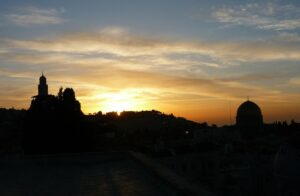 Ezra was the second of three key leaders to leave Babylon for the reconstruction of Jerusalem. While Zerubbabel would rebuild the Temple (Ezra 3:8), and Nehemiah rebuilt the walls, Ezra would restore worship. Ezra was a scribe and priest sent with religious and political powers by the Persian King Artaxerxes to lead the group of Jewish exiles from Babylon to Jerusalem (Ezra 7:8, 12). During the 70 years of exile, there was much intermarriage between the Jews and Babylonians. Ezra condemned mixed marriages and encouraged Jews to divorce and banish their foreign wives. While this sounds almost inhumane in our world today, Ezra was basing his position on what we would hear later from the Apostle Paul who is quoting Ezekiel:
Ezra was the second of three key leaders to leave Babylon for the reconstruction of Jerusalem. While Zerubbabel would rebuild the Temple (Ezra 3:8), and Nehemiah rebuilt the walls, Ezra would restore worship. Ezra was a scribe and priest sent with religious and political powers by the Persian King Artaxerxes to lead the group of Jewish exiles from Babylon to Jerusalem (Ezra 7:8, 12). During the 70 years of exile, there was much intermarriage between the Jews and Babylonians. Ezra condemned mixed marriages and encouraged Jews to divorce and banish their foreign wives. While this sounds almost inhumane in our world today, Ezra was basing his position on what we would hear later from the Apostle Paul who is quoting Ezekiel:

